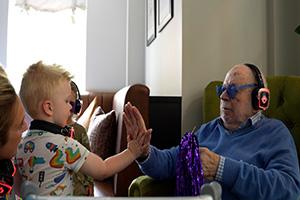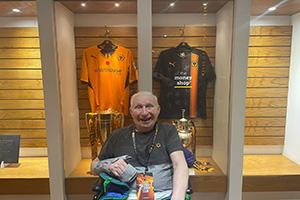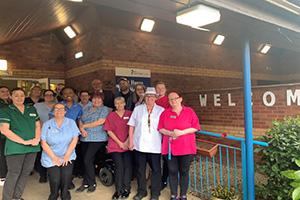Mental Health in Care Homes
The most effective care organisations take a truly holistic approach to healthcare, encompassing both mental and physical health. From our earliest years to later life, both must be looked after by people who care for us.
Mental health in young people is an important subject and it’s well documented that social media has a big part to play - but rising social media use in young people is not the only trend that concerns mental health.
At the other end of the spectrum, older age has its own obstacles.
As we live longer and richer lives, we often require help and support from a care community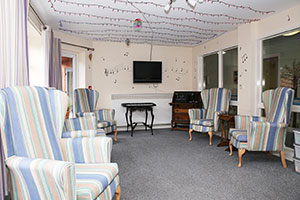 for a much longer period.
for a much longer period.
While many older people can and do choose to maintain their independence, some prefer the extra help that being part of a care community can bring, while others may need more direct, one-to-one assistance. Older age, and the transition to a care setting can both have their own challenges.
Maintaining wellbeing when joining a care community
Staff in care communities have a crucial role to play in supporting those making the transition. Any change in circumstances, especially for people with care and support needs, can be difficult on the individual’s mental health and their family, so this is an important stage in the process for care staff.
My team and I believe that the key element during this stage is highly bespoke communication about and with them – all the time. That means engaging in interesting conversation about their life and things that are personal to them. We provide support and advice every step of the way – whether it’s what happens when you move in, or a form that needs filling out, we communicate the how and the why. Upon arrival we ensure there are no communication barriers and remind residents they can come to us with any worries they may have.
By making sure we’re communicating effectively at every stage of transition, a difficult change becomes a well-communicated set of simple steps, meaning no one is overwhelmed.
Protecting the mental health of long-term residents
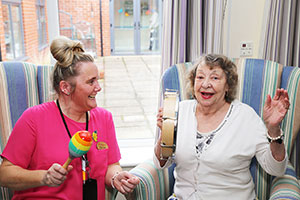 Maintaining and improving the mental health of our residents at Red Rose after they’ve joined us is a distinct task that requires a different approach. Building links with other residents and staff can take time but we tailor activities and conversational topics to each individual. Relationships with family can sometimes deteriorate if they are not supported and able to visit their loved one. And as people age, they may find it more difficult to take part in general activities that have been designed to bring them together.
Maintaining and improving the mental health of our residents at Red Rose after they’ve joined us is a distinct task that requires a different approach. Building links with other residents and staff can take time but we tailor activities and conversational topics to each individual. Relationships with family can sometimes deteriorate if they are not supported and able to visit their loved one. And as people age, they may find it more difficult to take part in general activities that have been designed to bring them together.
Thankfully, these issues are easily avoided with due care and attention. At Red Rose we fully support visitors coming to the home and keeping their loved one’s company. From this, we have implemented an ‘open all hours’ facility for families to come and go when is most convenient for them. The resident’s happiness is paramount to us – by putting extra effort into designing activities that are inclusive for those who are less physically able and may have poor eyesight or hearing, we can work together to combat loneliness and mental health effectively.
Article by Diane Watson, Red Rose Care Community



